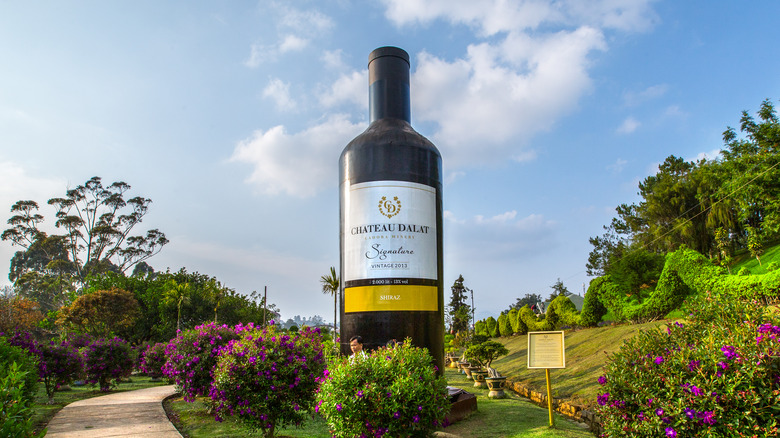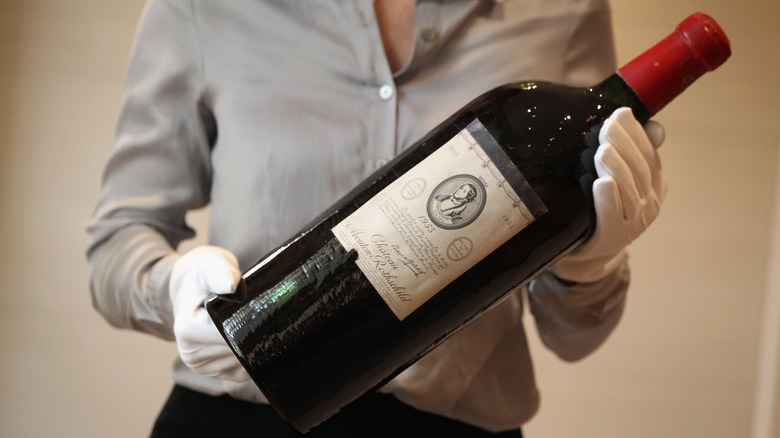The Impractical Novelty Of Oversized Wine Bottles
As Rudyard Kipling once said, "A man can never have too much red wine." We couldn't agree more, which is why we love to see large format wines. They are the right amount of fun and indulgent, perfect for parties and festivities, and they bring a glimmer of hope that maybe — just maybe – there will be enough wine.
Large format wines come in different sizes and have biblical names: Magnum (1.5 liters), Jeroboam or Double Magnum (3 liters), Rehoboam (4.5 liters), Bordeaux Jeroboam (5 liters), Imperial (6 liters), Methuselah (6 liters), Salmanazar (9 liters), Balthazar (12 liters), Nebuchadnezzar (15 liters), Melchior (18 liters), Solomon (20 liters), Sovereign (25 liters), Primat or Goliath (27 liters), and Melchizedek (30 liters).
All said and done, oversized vino bottles do satisfy the quantity criteria in group settings, but some experts think they veer towards impracticality because of their sheer size, among other factors. Mashed spoke with Mathew Woodburn-Simmonds, an ex-sommelier and the creator of Decoding Wine, to discuss the practicality of large wine formats like the Nebuchadnezzar. In his eyes, they score a solid zero in the practicality department.
"It's purely for show. Trying to pour even a 3l bottle of wine is really hard. Most of these bottles are made especially for parties or some event to look impressive. Utterly pointless practically speaking," he said.
They might go bad when recorked
There is nothing as painful as opening a bottle of leftover wine, only to find that it's been spoiled. Once a bottle of wine is uncorked, there is no going back. How long an open bottle of wine lasts depends on its type and the storage situation. When properly stored, a bottle of red wine can last up to five days. But why does uncorked wine go bad in the first place?
When corked, large format wines oxidize more slowly than regular wines and retain more flavor and complexity in the process. They are perfect for long-term aging. If you cannot finish a whole bottle once it's opened, the wine is introduced to air which causes oxidation. If you don't consume it soon enough, the wine gets a chance to be overly oxidized and develops a strange taste and altered color. This is why it's risky to recork a larger bottle.
"You can recork a larger bottle, but just be wary of how much is left. If there is only 1/3 of the bottle left then you'll be corking it with a lot of oxygen that will ruin the wine," said Woodburn-Simmonds. A 750-milliliter wine bottle going bad is one thing but imagine a 20-liter Solomon being spoiled.

